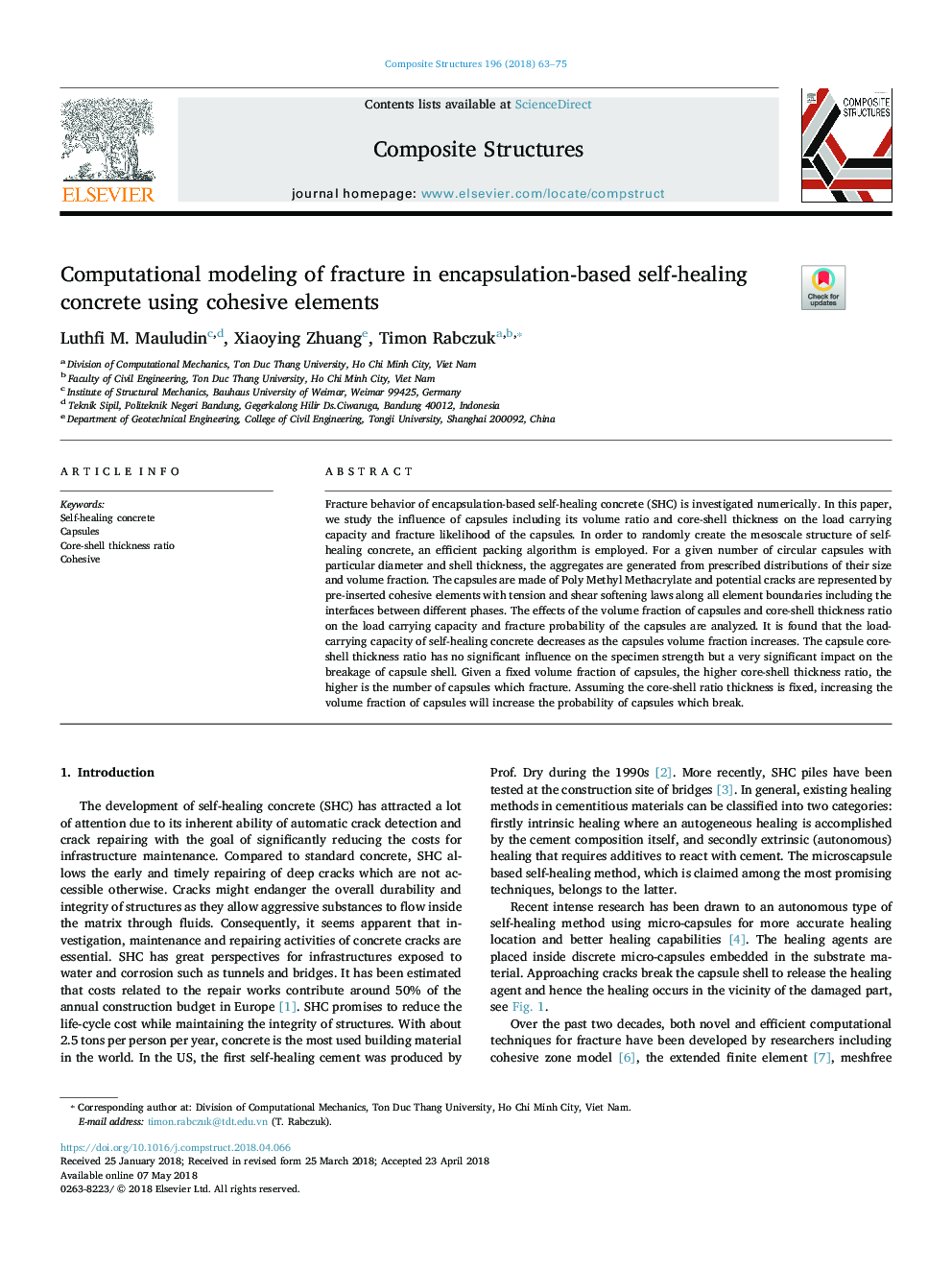| Article ID | Journal | Published Year | Pages | File Type |
|---|---|---|---|---|
| 6703326 | Composite Structures | 2018 | 13 Pages |
Abstract
Fracture behavior of encapsulation-based self-healing concrete (SHC) is investigated numerically. In this paper, we study the influence of capsules including its volume ratio and core-shell thickness on the load carrying capacity and fracture likelihood of the capsules. In order to randomly create the mesoscale structure of self-healing concrete, an efficient packing algorithm is employed. For a given number of circular capsules with particular diameter and shell thickness, the aggregates are generated from prescribed distributions of their size and volume fraction. The capsules are made of Poly Methyl Methacrylate and potential cracks are represented by pre-inserted cohesive elements with tension and shear softening laws along all element boundaries including the interfaces between different phases. The effects of the volume fraction of capsules and core-shell thickness ratio on the load carrying capacity and fracture probability of the capsules are analyzed. It is found that the load-carrying capacity of self-healing concrete decreases as the capsules volume fraction increases. The capsule core-shell thickness ratio has no significant influence on the specimen strength but a very significant impact on the breakage of capsule shell. Given a fixed volume fraction of capsules, the higher core-shell thickness ratio, the higher is the number of capsules which fracture. Assuming the core-shell ratio thickness is fixed, increasing the volume fraction of capsules will increase the probability of capsules which break.
Related Topics
Physical Sciences and Engineering
Engineering
Civil and Structural Engineering
Authors
Luthfi M. Mauludin, Xiaoying Zhuang, Timon Rabczuk,
